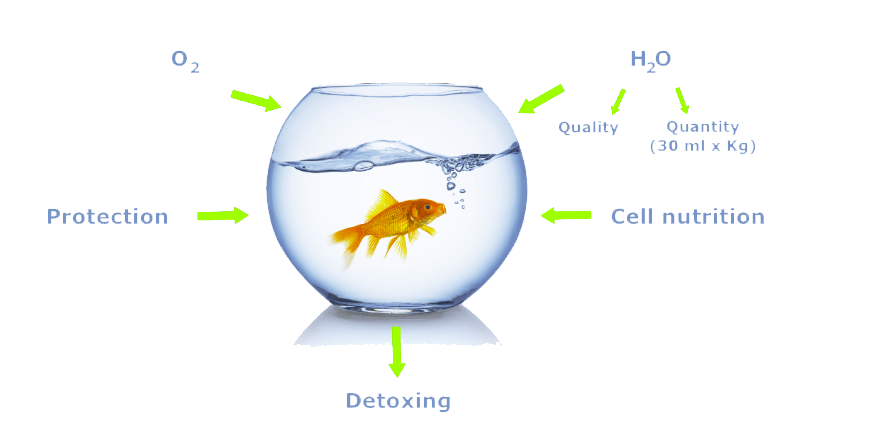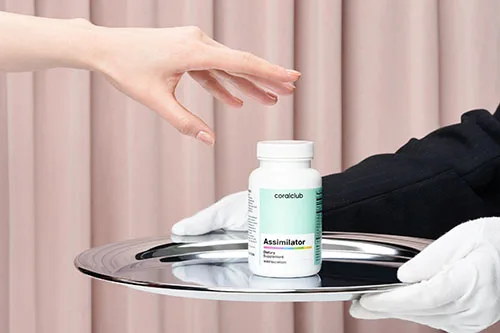Four Phases of Health Concept
Our cells need daily nourishment and accumulate pollutants. Coral Club’s health concept and products create a favorable cellular environment for healthy cells, overall well-being, and vitality into old age.
The Basics of a Healthy Lifestyle
A healthy lifestyle includes balanced nutrition, exercise, mental wellness, and social connections. Coral Club enhances this with supplements and programs for nutrition, detox, and hydration, promoting overall well-being and vitality.
The concept of health, deeply rooted in ancient wisdom, beckons us to rediscover the timeless principles of nature that our ancestors once held dear. In the hustle and bustle of modern times, we have often forgotten the profound connection between our well-being and the fundamental elements of the natural world. This holistic approach to health invites us to delve into ancient knowledge, truly understand ourselves, and nurture our well-being in harmony with nature.
The human body is a marvel of complexity, comprising twelve interconnected organ systems, each contributing to the seamless functioning of the whole organism. Let’s explore these systems and appreciate the intricate dance of physiological processes that sustains our vitality:
The human body is a marvel of complexity, comprising twelve interconnected organ systems, each contributing to the seamless functioning of the whole organism. Let’s explore these systems and appreciate the intricate dance of physiological processes that sustains our vitality:
- Integumentary System (Skin, Hair, Nails): Acts as a protective barrier, regulates temperature, and houses sensory receptors.
- Skeletal System (Bones, Joints, Ligaments): Provides structural support, protects internal organs, and facilitates movement.
- Muscular System (Skeletal Muscles, Tendons): Enables movement, supports posture, and generates heat.
- Nervous System (Brain, Spinal Cord, Nerves): Coordinates body activities, processes sensory information, and facilitates communication between body parts.
- Endocrine System (Glands, Hormones): Regulates bodily functions through the secretion of hormones, influencing metabolism, growth, and development.
- Cardiovascular System (Heart, Blood Vessels, Blood): Circulates blood to deliver oxygen and nutrients, and removes waste products.
- Lymphatic System (Lymph Nodes, Spleen, Thymus): Supports the immune system by transporting lymph and filtering out impurities.
- Respiratory System (Lungs, Trachea, Bronchi): Facilitates the exchange of oxygen and carbon dioxide to support cellular respiration.
- Digestive System (Stomach, Intestines, Liver): Processes and absorbs nutrients from food, eliminates waste.
- Urinary System (Kidneys, Bladder, Ureters): Filters blood to remove waste, regulates electrolyte balance, and produces urine.
- Reproductive System (Male: Testes, Female: Ovaries, Uterus): Facilitates reproduction, produces sex hormones.
- Immune System (White Blood Cells, Spleen, Bone Marrow): Defends the body against infections and diseases.
While modern medicine often addresses symptoms within individual organ systems, it may overlook the interconnected nature of these systems and the root causes of dysfunction. Nutritionology, in contrast, embraces a holistic approach, recognizing the individual as a unified organism. The focus is not merely on symptom prevention but on addressing causative factors, even at the cellular level.

As we embrace the concept of health, we embark on a journey to appreciate the intricate harmony within our bodies. Recognizing the interplay of these twelve organ systems, we move away from fragmented approaches towards a more integrated and enlightened path to lasting health and vitality. In understanding the profound unity of our physiological systems, we rediscover the ancient wisdom that connects us to the very essence of nature.


As we embrace the concept of health, we embark on a journey to appreciate the intricate harmony within our bodies. Recognizing the interplay of these twelve organ systems, we move away from fragmented approaches towards a more integrated and enlightened path to lasting health and vitality. In understanding the profound unity of our physiological systems, we rediscover the ancient wisdom that connects us to the very essence of nature.

The concept of health, deeply rooted in ancient wisdom, beckons us to rediscover the timeless principles of nature that our ancestors once held dear. In the hustle and bustle of modern times, we have often forgotten the profound connection between our well-being and the fundamental elements of the natural world. This holistic approach to health invites us to delve into ancient knowledge, truly understand ourselves, and nurture our well-being in harmony with nature.
The human body is a marvel of complexity, comprising twelve interconnected organ systems, each contributing to the seamless functioning of the whole organism. Let’s explore these systems and appreciate the intricate dance of physiological processes that sustains our vitality:
The human body is a marvel of complexity, comprising twelve interconnected organ systems, each contributing to the seamless functioning of the whole organism. Let’s explore these systems and appreciate the intricate dance of physiological processes that sustains our vitality:
- Integumentary System (Skin, Hair, Nails): Acts as a protective barrier, regulates temperature, and houses sensory receptors.
- Skeletal System (Bones, Joints, Ligaments): Provides structural support, protects internal organs, and facilitates movement.
- Muscular System (Skeletal Muscles, Tendons): Enables movement, supports posture, and generates heat.
- Nervous System (Brain, Spinal Cord, Nerves): Coordinates body activities, processes sensory information, and facilitates communication between body parts.
- Endocrine System (Glands, Hormones): Regulates bodily functions through the secretion of hormones, influencing metabolism, growth, and development.
- Cardiovascular System (Heart, Blood Vessels, Blood): Circulates blood to deliver oxygen and nutrients, and removes waste products.
- Lymphatic System (Lymph Nodes, Spleen, Thymus): Supports the immune system by transporting lymph and filtering out impurities.
- Respiratory System (Lungs, Trachea, Bronchi): Facilitates the exchange of oxygen and carbon dioxide to support cellular respiration.
- Digestive System (Stomach, Intestines, Liver): Processes and absorbs nutrients from food, eliminates waste.
- Urinary System (Kidneys, Bladder, Ureters): Filters blood to remove waste, regulates electrolyte balance, and produces urine.
- Reproductive System (Male: Testes, Female: Ovaries, Uterus): Facilitates reproduction, produces sex hormones.
- Immune System (White Blood Cells, Spleen, Bone Marrow): Defends the body against infections and diseases.
While modern medicine often addresses symptoms within individual organ systems, it may overlook the interconnected nature of these systems and the root causes of dysfunction. Nutritionology, in contrast, embraces a holistic approach, recognizing the individual as a unified organism. The focus is not merely on symptom prevention but on addressing causative factors, even at the cellular level.

As we embrace the concept of health, we embark on a journey to appreciate the intricate harmony within our bodies. Recognizing the interplay of these twelve organ systems, we move away from fragmented approaches towards a more integrated and enlightened path to lasting health and vitality. In understanding the profound unity of our physiological systems, we rediscover the ancient wisdom that connects us to the very essence of nature.

The health concept we offer is based on four cornerstones:

As we embrace the concept of health, we embark on a journey to appreciate the intricate harmony within our bodies. Recognizing the interplay of these twelve organ systems, we move away from fragmented approaches towards a more integrated and enlightened path to lasting health and vitality. In understanding the profound unity of our physiological systems, we rediscover the ancient wisdom that connects us to the very essence of nature.

The health concept we offer is based on four cornerstones:
Coral Club
Note: Even if you aren’t experiencing health issues, some conditions can be symptomless. To ensure overall health, consider essential tests such as blood sugar, vitamin D, homocysteine, and thyroid indicators (TSH, T4, T3, antibodies to TPO and TG).
Note: Before beginning the Health Concept journey, we recommend a comprehensive clinical blood test. Consult a healthcare professional to evaluate the results, customize nutritional recommendations, and guide you through proactive steps for optimal well-being.




